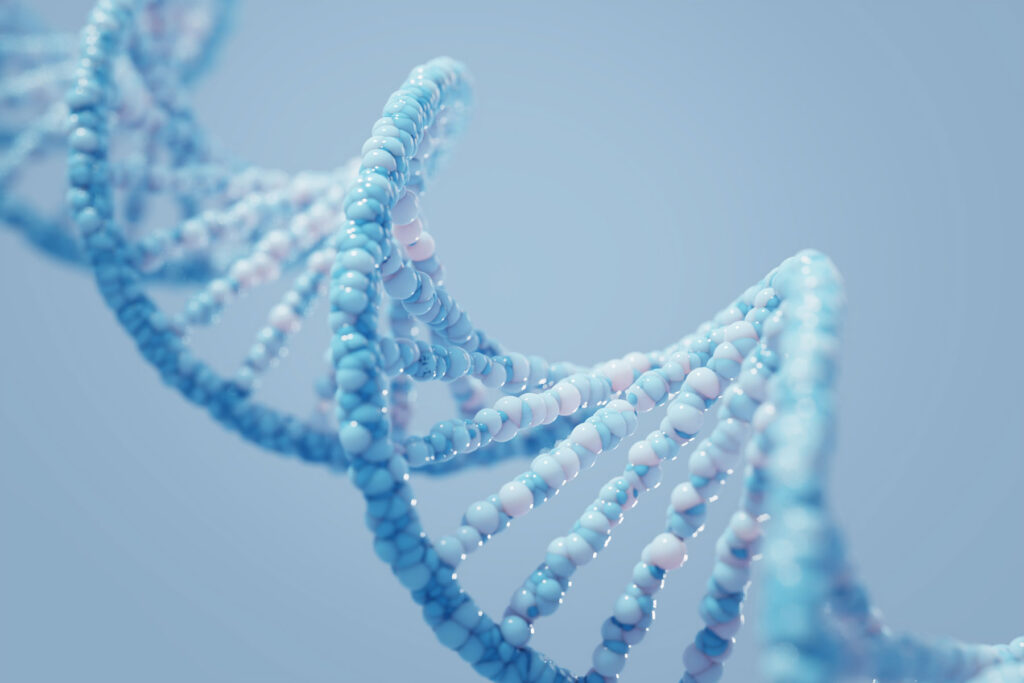There is no doubt America is facing a public health crisis with drug addiction, and North Carolina is no exception. Prescription drugs like opioids and benzodiazepines, or stimulants like meth and cocaine, disrupt lives, destroy communities, and take a toll on individuals and their families. For many people who have witnessed intergenerational drug use and addiction, the question occurs, “Can drug addiction be genetic?” The answer is “yes,” but there is debate as to how much influence genetics has on drug addiction when weighed against external social, economic, and environmental factors. Nonetheless, genetics is a variable in the equation.
Insight Recover Center in Asheville, NC, understands the complexities of substance use disorders and what makes some people more prone to addiction. If you or a loved one is caught in the cycle of addiction, schedule an appointment to start your recovery journey today at Insight Recovery Center.
Can Drug Addiction Be Genetic?
Yes, a March 2023 study from the National Institute on Drug Abuse (NIDA)1 looked at the genomic data of over one million people. Scientists were able to identify genes commonly inherited across substance use disorders, regardless of the substance being used.
Other relevant outcomes of the article included the following:
- The findings also reinforce the role of the dopamine system in addiction by showing that the combination of genes underlying addiction disorders was also associated with the regulation of dopamine signaling.
- Substance use disorders are heritable and influenced by complex interactions among multiple genes and environmental factors.
- Researchers discovered various molecular patterns underlying addiction, including 19 independent single-nucleotide polymorphisms (SNPs) significantly associated with general addiction risk and 47 SNPs for specific substance disorders among the European ancestry sample.
- The strongest gene signals consistent across the various disorders mapped to areas in the genome known to control regulation of dopamine signaling, suggesting that genetic variation in dopamine signaling regulation, rather than in dopamine signaling itself, is central to addiction risk.
This suggests that while genetics are certainly not the sole determining factor in addiction, they do play a role.
What Makes Some People Prone to Addiction?
Several factors contribute to why some individuals are more prone to drug addiction than others. While genetics play a critical role, other elements such as environmental influences, mental health, and social factors are equally impactful. Some of the key contributors that increase the risk of developing drug addiction include the following:
- Genetic predisposition – As mentioned, variations in genes that regulate dopamine signaling are strongly associated with addiction risk. A family history of addiction can significantly increase susceptibility.
- Environmental influences – Growing up in an environment with high substance availability, peer pressure, or exposure to drug use can increase the likelihood of developing addiction.
- Early exposure – Research has shown that individuals who begin using substances during adolescence are at a much higher risk of developing addiction later in life due to the brain’s ongoing development during this period.
- Mental health conditions – Disorders such as anxiety, depression, PTSD, or ADHD often co-occur with substance use disorders, as individuals may turn to drugs as a form of self-medication.
- Trauma and stress – Experiencing significant stressors such as abuse, neglect, or other traumatic events can elevate the risk of addiction as people may seek substances to cope.
- Social isolation – Lack of strong, supportive relationships or feelings of loneliness can make individuals more susceptible to turning to drugs to fill emotional voids.
Understanding these factors highlights the complex interplay of biology, environment, and personal experiences in addiction risk, emphasizing the need for prevention and intervention strategies.
Reach Out to Insight Recovery Center for Addiction Treatment Today
If you or a loved one is caught in the cycle of addiction—whether you have a family history or not—professional addiction treatment offers the best chance of a successful recovery. Insight Recovery Center in Asheville offers North Carolina residents comprehensive outpatient treatment programs that use evidence-based therapies and holistic approaches to address a wide variety of substance use disorders and co-occurring mental health conditions.
Call 828.826.1376 or reach out online to learn how our programs and services can help you find a life of hope, healing, and recovery.
Sources

